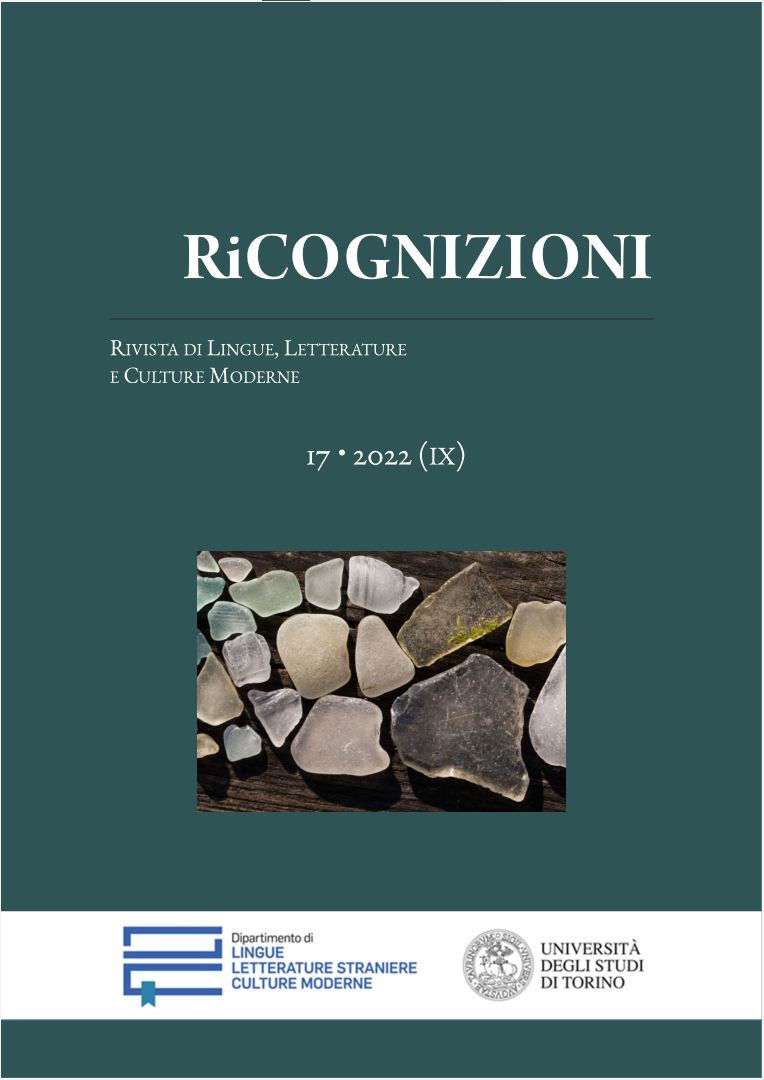Messaggi da Palazzo Federale. Osservazioni sulle allocuzioni di Capodanno in lingua italiana dei Presidenti della Confederazione Svizzera (2011-2021)
DOI:
https://doi.org/10.13135/2384-8987/6507Parole chiave:
Swiss, Italy, Presidential Speeches, Lexicon, TranslationAbstract
Messages from the Federal Palace. Observations on the New Year's Speeches in Italian of the Presidents of the Swiss Confederation (2011-2021). The article provides thematic, linguistic and textual remarks on the speeches held in Italian by the Presidents of the Swiss Confederation in the last ten years, from 2011 to 2021, on the occasion of New Year’s Day. In the background there are, though not always made explicit, the analysis and observations proposed in Messaggi dal Colle. I discorsi di fine anno dei presidenti della Repubblica, edited by Michele Cortelazzo and Arjuna Tuzzi in 2007.
This work consists in two sections. The first one, based on automatic lexemes extraction and lemmatization of the whole corpus, proposes a thematic analysis: the result is a characterization of the semantic peculiarity of the Swiss presidential speeches compared to the ones from Italy, which concerns, among others, the self-representation of the President, the shaped image of the Country, the evoked values – political, social, moral. In many respects, the specificity of the Swiss speeches can be connected to the political and institutional peculiarities of the Country: in Switzerland the President is a member of the government, he/she is elected for one-year term and is part of a collegiate executive, so he/she represents the whole Federal Council.
Since the original version of the presidential speeches is in German or in French, the second section of the article focuses on analysing the quality of the Italian translation. For example, a remarkable characteristic is an inconsistent register rise in the translation, aspect which is wrong in itself – a translation should conform to the original linguistic variety –, but which is even less acceptable when the text is addressed to everybody and has an expressive and reasonably colloquial component. This rise can be in part explained by taking into account the cultural tradition of the Italian language, which gives value to the lexical, syntactic and textual complexity of communication.
##submission.downloads##
Pubblicato
Come citare
Fascicolo
Sezione
Licenza
Gli autori che pubblicano su questa rivista accettano le seguenti condizioni:- Gli autori mantengono i diritti sulla loro opera e cedono alla rivista il diritto di prima pubblicazione dell'opera, contemporaneamente licenziata sotto una Licenza Creative Commons - Attribuzione che permette ad altri di condividere l'opera indicando la paternità intellettuale e la prima pubblicazione su questa rivista.
- Gli autori possono aderire ad altri accordi di licenza non esclusiva per la distribuzione della versione dell'opera pubblicata (es. depositarla in un archivio istituzionale o pubblicarla in una monografia), a patto di indicare che la prima pubblicazione è avvenuta su questa rivista.
- Gli autori possono diffondere la loro opera online (es. in repository istituzionali o nel loro sito web) prima e durante il processo di submission, poiché può portare a scambi produttivi e aumentare le citazioni dell'opera pubblicata (Vedi The Effect of Open Access).








